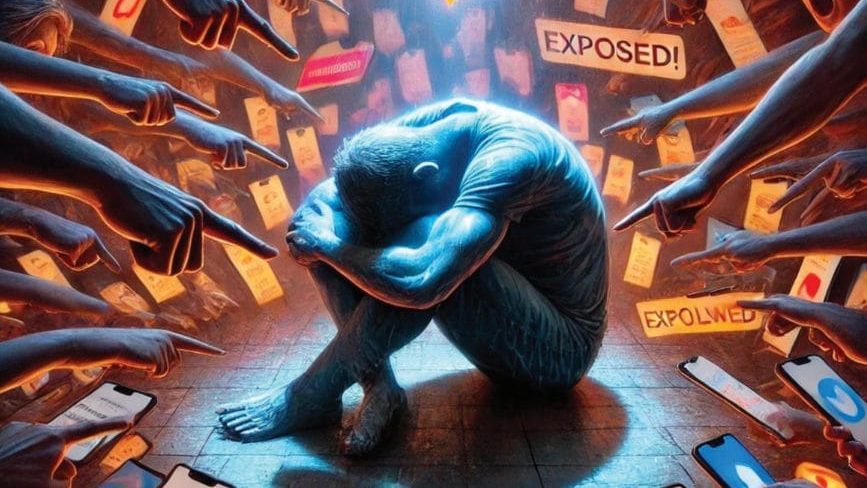In a move which exemplifies the growing encroachment of the algorithmic into the artistic, the most recent Oxford Union term card is brimming with the soulless products of artificial intelligence. The Week 5 debate exhumes cancel culture from the graveyard of politics with the hackneyed motion ‘This House Would Cancel Cancel Culture’. Its accompanying AI-generated image depicts a man, the wretched ‘victim’ of social ostracisation, encircled by accusatory and often grotesquely deformed fingers, distorted phone screens, and signs which read “You’re canceled!”, “Exposed!”, and, finally, “Expolwed”. It is hard to decide which is more egregious: the American spelling of ‘cancelled’ or the entirely meaningless “Expolwed”. Reluctantly, I may have to opt for the latter.
There is an obvious reason why this image and the others on the term card, at which I sadistically encourage you to take a closer look, are manifestly absurd when given more than a moment’s glance. After all, beyond the at most half-a-dozen words used to generate them, they are entirely thoughtless; without ever having seen them, you may already have given them more attention than their ‘creator’. This leaves them with little real purpose. I would criticise the obvious heavy-handedness and lack of nuance of the cancel culture image, but I cannot do so without implying that there is some level of intentionality behind it, where in reality there is none. It is merely nonsense masquerading as art; criticising it is a waste of time. In the right hands, AI image generation is a sophisticated tool. But the Union, it seems, confuses a chisel for a sledgehammer.
This is, at its core, shamefully lazy.
There is a deeper issue here, too. In his welcome, this term’s President claims that “the Union is more than a debating society, it’s a space for free speech, for challenging orthodoxy, for sparking change.” Gratuitous use of AI-generated content, makes a mockery of these lofty ideals. Even “expolwed” aside, the images are devoid of imagination. If they are to constitute a form of expression, which I would deny, they are its most hollowed out and uninteresting kind. And yet, in the most recent term card, this meaningless nonsense has replaced the products of genuine human creativity; silence has replaced speech. The Union had the opportunity to live up to its ideals of free expression and chose to do the opposite, instead passing the platform to an AI which is both unfree and incapable of expression.
Artists matter. Most fundamentally, they keep us honest, to ourselves and to each other, and, in a dishearteningly common number of recent examples, they face censorship for doing so. AI merely rips off and regurgitates this work, providing almost no additional value and, as a result, producing works which very rarely make sense. And yet, because using it takes so little effort, artists will soon be drowned out by a jumbled tide of these hollow, AI-generated counterfeits. In many places this has unfortunately already begun to happen. The Oxford Union has, through laziness, become one of them. It undermines artists at a time when support for them and their free expression could not be more important. This is an obvious betrayal of the Union’s supposed commitment to free speech, a failure of both imagination and principle.
The Oxford Union did not respond to request for comment.
Have an opinion on the points raised in this article? Send us a 150-word letter at [email protected] and see your response in our next print or online.


